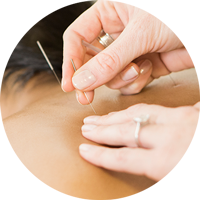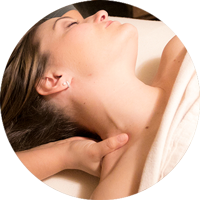Heavy Metal Testing in Chicago
Heavy metals are dangerous pollutants found in a variety of sources from industrial waste to everyday items like canned food and cosmetics.
Though we can’t see them, these hidden toxins can increase our risk of developing serious health issues if not regularly monitored and dealt with accordingly. This is why testing for heavy metals in the body is so important.
Read on to learn more about this essential precautionary measure.
Exposure to heavy metals
We are exposed to heavy metal toxins daily through ingesting, breathing or coming into contact with them directly. These toxins accumulate in our bodies over time which affects organ function, weakens the immune system and increases risks of diseases such as cancer, dementia and diabetes.
Should I get tested for heavy metals?
Functional Medicine practitioners often recommend testing for heavy metals because exposure to them may lead to various health issues, ranging from fatigue and headaches to more severe conditions like kidney damage and impaired brain function.
Heavy metals such as lead, mercury, arsenic, and cadmium are present in our environment and can contaminate food, water, and air.
These toxins accumulate in the body over time and may be responsible for chronic health problems. Testing for heavy metals can help identify any potential toxicities and assist in developing a personalized treatment plan to remove or reduce heavy metal levels in the body.
Overall, testing for heavy metals is an essential tool for Functional Medicine practitioners to understand the root cause of their patients’ health issues and provide targeted treatments for long-term wellness.
Types of Heavy Metal Testing
The most common type of heavy metal test is called a “total blood level test” which measures all the levels of major metals like lead, arsenic, nickel and mercury in the bloodstream.
This method is often preferred because it requires minimal effort (just a single blood sample) while providing accurate results quickly.
Other tests including cheek swabs or hair samples could be used depending on the situation.
What heavy metals do doctors look for?
Functional medicine doctors typically look for several heavy metals, depending on the patient’s symptoms and exposure history.
The most common heavy metals tested include lead, mercury, arsenic, and cadmium. Lead is a neurotoxin commonly found in old paint, pipes, and contaminated soil.
Mercury is often present in seafood, dental fillings, and cosmetics. Arsenic exposure can occur through contaminated water or food. Cadmium exposure is commonly associated with smoking and industrial workplaces.
Other metals that may be tested include aluminum, nickel, and copper.
Functional medicine doctors may use different testing methods to assess heavy metal toxicity, such as blood, urine, hair, or stool analysis. By identifying heavy metal toxicity, functional medicine doctors can develop personalized treatment plans that aim to remove or reduce heavy metal levels in the body and promote optimal health.
Schedule your free consultation today
If you have heavy metals in your body, it’s important to work with a qualified healthcare professional, such as a Functional Medicine doctor, to develop a personalized treatment plan. Treatment typically involves removing or reducing heavy metal levels through various methods, depending on the type and severity of toxicity.
Connect with our team of Functional Medicine experts for a free consultation. We have several clinics in Chicago and surrounding areas. Telemedicine appointments are also now available in several states throughout the nation. Schedule below!
Schedule
Please fill out the form to request an appointment at our health and wellness center for the service and location of your preference. We try to get back to all requests as quickly as possible. If you need immediate assistance, please call 773-598-4387.
Your safety comes first: we are operating with heightened safety measures in our clinics and offer telemedicine for those unable to visit in person.






